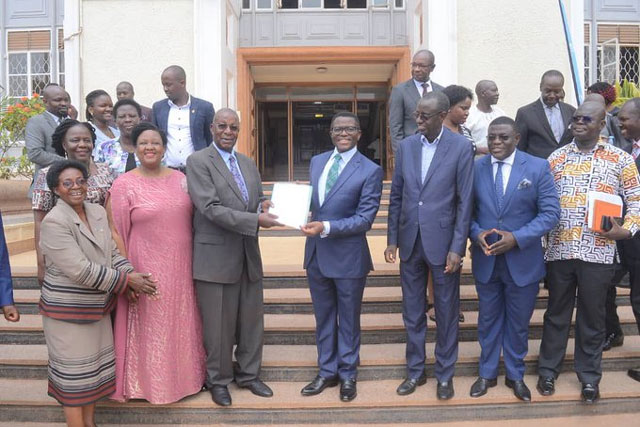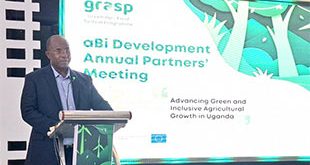
Kampala, Uganda | THE INDEPENDENT | The Education Policy Review Commission (EPRC) has asked for more time to complete its task. The Commission Chairperson, Col (Rtd) Nuwe Amanya Mushega, made the request in his February 20, 2023 letter to the Permanent Secretary of the Ministry of Education and Sports.
“…I would be grateful to have the process of extending the term of the commission embarked on in good time,’ the letter reads in part. In the letter, Mushega emphasized the critical nature of the extension, saying it would enable the commission to be included in the national budget. The Education Minister, Janet Kataha Museveni instituted the 12-member commission on May 21, 2021, and was expected to complete work within 12 months.
As per the terms of reference, the commission was responsible for investigating and examining various aspects of the education and sports sub-sectors, including policy, planning, funding, access, implementation, management, quality, institutional and staff capacity, and legislation. Additionally, the commission was expected to develop recommendations on how to address challenges in the education sector.
However, the commission faced several challenges, including limited resources and disruptions caused by the COVID-19 pandemic, which hindered their progress. URN understands that at one point, the commission’s work even came to a total halt, as there was no money to fund their activities.
On August 25, 2022, the commissioners raised the issue of resources in their meeting with the president. At the meeting, the Education Minister, Janet Kataha Museveni, apologized to the Commissioners for the challenging working conditions they were facing.
Ms. Museveni also requested the Ministry of Finance to allocate funds in the restricted budget for Financial Year 2022/2023 to allow the EPRC to initiate consultation meetings and finalize the project. Additionally, she granted the EPRC a 12-month extension from June 2022, which would enable them to work until May, this year.
The reasons for the commission’s request for a second extension were not explicitly stated by the chairperson in his letter to the PS. However, some individuals working at the commission have informed reporters that the collection of views from various stakeholders is still ongoing. Despite this, Mushega expressed confidence in a letter that the commission would be able to complete the task within the extended timeframe if granted.
Some educationists contacted by our reporter agreed in principle that from the onset the commission was given limited time as it would be magic for them to carry out extensive consultations with stakeholders across the country, read the submitted memoranda, and carry out benchmarking if need be and prepare a report in one year.
For instance, Gonzaga Kaswarra, an education consultant, noted that given the fact that the system has spent nearly thirty years without any policy review, there are a number of issues that need to be looked at deeply.
A similar commission which was instituted by Mushega, then the minister of education, took three years (1987 to 1989) and it took the government another two and half years to generate the 1992 education white paper out of the commission’s report.
Although some educationists believe that the time frame may not be a significant concern, Dr. John Mary Vianney Mitana, the Executive Director of JM Education and Research Centre, suggests that the focus should instead be on the commission’s accomplishments after one, two, or even five years.
According to Dr. Mitana, it is common for the government to establish commissions with the aim of creating job opportunities for certain individuals, and these commissions are often given extensions without producing any meaningful results.
He adds that Ugandans should keep the eye on the ball, to see whether the commission is going to give answers to the critical questions of the day that matter to the local person deep in a village.
Currently, the commission is actively conducting hearings and receiving memorandums from various individuals. In addition, they have conducted field visits to several regions. Once this phase is completed, the commission will analyze the collected views and prepare a report which is expected to reshape Uganda’s education and sports sector .#
*****
URN
 The Independent Uganda: You get the Truth we Pay the Price
The Independent Uganda: You get the Truth we Pay the Price



